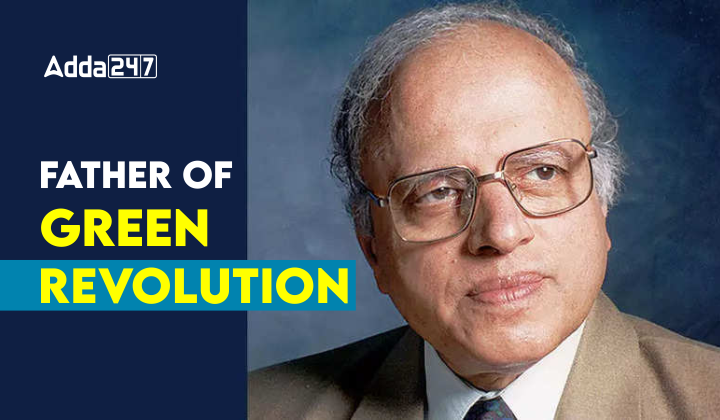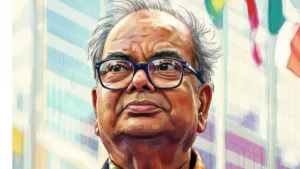Father of Green Revolution: Dr. M.S. Swaminathan
in the narrative of India’s agricultural progress, Dr. M.S. Swaminathan stands out as a prominent and influential figure, widely recognized as the “Father of the Green Revolution” for his substantial contributions to the nation’s agricultural sector. His inventive concepts have had an enduring impact on India’s capacity to sustain itself and its overall agricultural well-being.
Green Revolution’s Father – Early Life and Education
Birth date: 7th August 1925
Birth place: Kumbakonam, Tamil Nadu
As M.S. Swaminathan born to the family of a surgeon, his educational trajectory paved the way for his monumental contributions. After pursuing his education in India, he continued his academic pursuits at the University of Cambridge, where he earned his Ph.D. in genetics in 1952.
The Genesis of Green Revolution
Swaminathan’s legacy finds its roots in his development of high-yielding varieties (HYV) of wheat during the 1960s. Collaborating with scientist like Norman Borlaug, he played a pivotal role in averting a potential mass famine in India. This break-through marked the genesis of the Green Revolution in the country, earning Swaminathan his distinguished title.
Path of Transformation
Over the course of two decades, Swaminathan worked in many fields, from research roles to administrative positions. Working within the Indian Civil Service, he harnessed his expertise to introduce Mexican semidwarf wheat plants to Indian fields. His efforts bridged the gap between traditional and modern farming practices, facilitating a more receptive atmosphere for innovative agricultural methods.
| Other Important Articles | |
| Father of White Revolution | Father of Yellow Revolution |
| Father of Pink Revolution | Father of Blue Revolution |
Leadership and Global Impact
Swaminathan’s contribution transcended national borders. He served as the Director General of the Indian Council of Agricultural Research from 1972-1979, influencing key agricultural policies. Later he assumed the role of Principal Secretary of the Indian Ministry of Agriculture and Irrigation from 1979-1980.
Swaminathan’s influence resonated globally. He held the position of Director General at the International Rice Research Institute from 1982-1988. His commitment to conservation led him to become the President of the International Union for Conservation of Nature and Natural Resources from 1984-1990. In 2001, he chaired the Regional Steering Committee for the India-Bangladesh joint Project on Biodiversity Management in the Sundarbans World Heritage Site.
Honors and Recognition
Swaminathan’s contributions led him to receive various honors and awards which are as follows:
- Shanti Swarup Bhatnagar Award in 1961
- Padma Vibhushan in 1989
- Ramon Magsaysay Award in 1971
- UNESCO Mahatma Gandhi Gold Medal in 1999.
Death of M.S. Swaminathan
Mankombu Sambasivan Swaminathan, affectionately known as M.S. Swaminathan, a revered figure in the field of agriculture and a genuine champion of humanity, has left us on 28th September 2023 at the age of 98 years.
Legacy
M.S. Swaminathan’s journey from genetics to the “Father of Green Revolution” is a testament to his unwavering commitment to improving lives and fostering agricultural prosperity. His legacy continues to shine as a beacon of hope for farmers, scientists and leaders striving to make a positive impact on the world.
Find More General Studies News Here




 Legendary Bengali Author Shankar Passes ...
Legendary Bengali Author Shankar Passes ...
 List of Dadasaheb Phalke Award Winners f...
List of Dadasaheb Phalke Award Winners f...
 Which Dance Form is known as the Ballad ...
Which Dance Form is known as the Ballad ...








